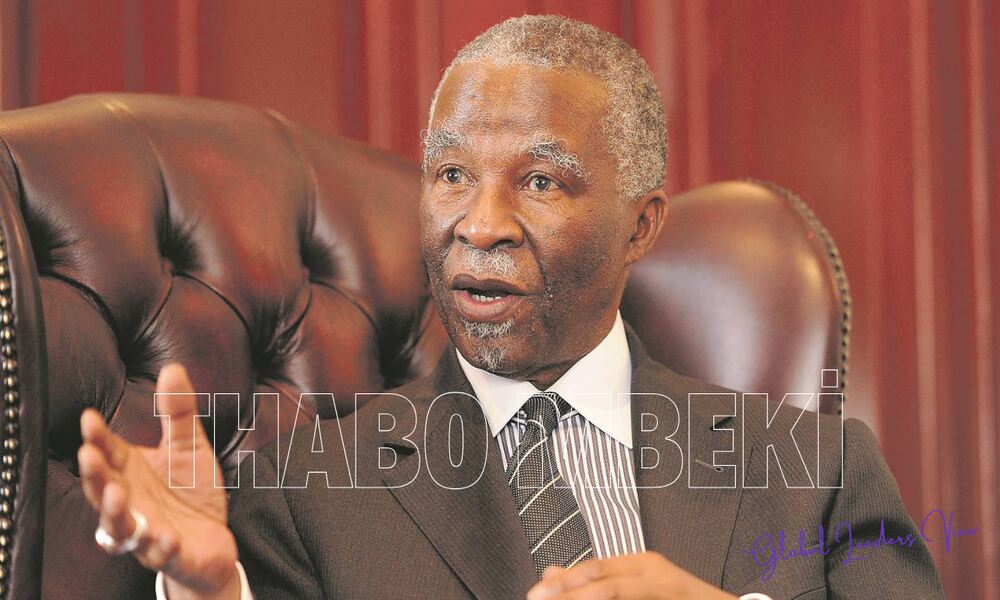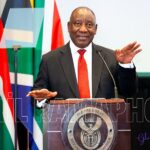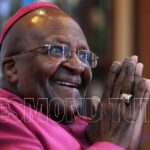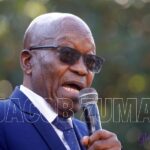Thabo Mbeki: The Journey of a Visionary Leader

Thabo Mbeki stands as one of Africa’s most prominent political figures, a leader whose vision and policies shaped the trajectory of modern South Africa. From his early years in exile to his presidency and beyond, Mbeki’s journey is defined by resilience, intellectual rigor, and a steadfast commitment to both the African continent and its people.
This article Look into the life, leadership and legacy of Thabo Mbeki, exploring his influence on South Africa’s political landscape and his broader impact on the world.
Early Life and Political Awakening
Born on June 18, 1942, in the small village of Mbewuleni, in the Eastern Cape of South Africa, Thabo Mbeki’s journey began in the heart of the anti-apartheid struggle. His early exposure to politics came from his family’s involvement in the African National Congress (ANC). His father, Govan Mbeki, was a prominent political figure, and Thabo grew up with a deep awareness of the systemic injustices imposed by the apartheid regime.
In 1962, Mbeki left South Africa to study at the University of Sussex in the United Kingdom. This period in exile would become a defining moment in Mbeki’s life, exposing him to global political ideologies and shaping his worldview. His time abroad also allowed him to engage more deeply with the African liberation movements and cement his commitment to the struggle for a free and democratic South Africa.
Exile and the ANC: An Unyielding Commitment to Freedom
Mbeki’s time in exile was marked by his pivotal role in the African National Congress (ANC). As a member of the ANC’s armed wing, Umkhonto we Sizwe, he helped organize anti-apartheid resistance movements both in South Africa and abroad. His dedication to the cause saw him become a key diplomat for the ANC, representing the organization at various international forums, including the United Nations.
During the 1970s and 1980s, Mbeki’s political ideology began to take shape. Influenced by Marxism and Pan-Africanism, he advocated for a socialist vision of South Africa’s future. However, Mbeki also recognized the importance of reconciliation and the need for peaceful transitions in societies emerging from conflict. His contributions were not limited to just the ANC, but extended to the broader African liberation movement, where he became a key figure in the establishment of strong relationships between African states.
Return to South Africa: A New Chapter in South African Politics
Mbeki returned to South Africa in 1990 following the unbanning of the ANC and the release of Nelson Mandela from prison. His return marked the beginning of a new chapter not just for Mbeki, but for the entire country. As the ANC navigated the complexities of negotiating the end of apartheid, Mbeki played an instrumental role. His sharp intellect, diplomatic skill, and understanding of the international landscape made him an indispensable asset to the ANC.
In 1994, after the first democratic elections, South Africa elected Nelson Mandela as president. Mbeki, however, had already secured his position as the deputy president of the country. His tenure as deputy president allowed him to shape policies that would define the nation’s future, focusing on both the internal development of South Africa and the country’s relations with the global community.
Thabo Mbeki’s Presidency: The Visionary Leader
In 1999, Thabo Mbeki became the second president of South Africa, succeeding Nelson Mandela. Mbeki’s presidency was characterized by ambitious economic reforms, a focus on national unity, and a strong drive for African solidarity. His administration was deeply committed to uplifting the South African economy, and his policies often leaned towards market-friendly approaches, which were somewhat controversial given the nation’s high poverty levels.
Economic Reforms and Growth Under Mbeki
Mbeki’s government took significant steps towards economic reform. Under his leadership, South Africa saw an average annual growth rate of 4% during his two terms. He emphasized the importance of stabilizing the economy, attracting foreign investment, and boosting the country’s infrastructure. His administration introduced a variety of initiatives, including the Growth, Employment and Redistribution (GEAR) program, which aimed to reduce unemployment and encourage private sector development.
However, these policies were met with mixed reactions. While Mbeki’s focus on fiscal discipline and reducing the budget deficit was lauded by many international investors, critics argued that the benefits were not equally felt across the broader South African society. Economic growth was not immediately accompanied by reductions in the high levels of poverty or inequality, which were persistent challenges throughout his presidency.
The African Renaissance: A Pan-African Vision
Perhaps one of Mbeki’s most enduring legacies is his commitment to the African Renaissance—the idea of revitalizing the African continent by promoting democracy, development, and Pan-African unity. Mbeki’s vision was rooted in his belief that African solutions must be found for Africa’s challenges. His foreign policy emphasized the importance of African countries taking charge of their own destinies and collaborating for mutual progress.
Under Mbeki’s leadership, South Africa played a pivotal role in mediating peace negotiations across the continent, including efforts to resolve the conflicts in Burundi and the Democratic Republic of Congo. Mbeki’s role in the New Partnership for Africa’s Development (NEPAD) further solidified his reputation as a strong advocate for African-led development.
His leadership was particularly important during the early 2000s when African nations were pushing for greater representation on the global stage. Mbeki’s diplomacy and advocacy for African issues made South Africa a key player in international politics, ensuring the continent’s concerns were heard in forums such as the United Nations and the African Union.
Challenges and Controversies
Despite Mbeki’s numerous successes, his presidency was not without controversy. His handling of the HIV/AIDS epidemic remains one of the most debated aspects of his leadership. Mbeki famously rejected the link between HIV and AIDS, a stance that alienated many in the scientific community and led to a delay in implementing vital health interventions. His government was slow to introduce antiretroviral treatment, a decision that cost many lives.
Mbeki’s increasingly strained relationship with his political rival, Jacob Zuma, eventually led to his recall in 2008. The ANC, which had once been his steadfast ally, removed him from office amid allegations of corruption and poor governance. This marked the end of his presidency, though Mbeki remained an influential figure in South African politics.
Legacy: A Controversial but Impactful Figure
Thabo Mbeki’s legacy is undoubtedly complex. On one hand, he was a visionary leader who sought to transform South Africa into a strong, self-reliant nation, both economically and politically. His vision for a united and democratic Africa has had a lasting impact on the continent’s trajectory. Mbeki’s foreign policy and role in international diplomacy secured South Africa’s place as a significant global player.
On the other hand, Mbeki’s presidency faced criticism for its handling of social issues, particularly in health and wealth distribution. His failure to address the HIV/AIDS crisis in a timely manner remains a blemish on his record. Additionally, his relationship with the ANC and his eventual ousting from office revealed the underlying tensions within the party that would eventually lead to the rise of Jacob Zuma as president.
Nevertheless, Thabo Mbeki remains a monumental figure in African history. His intellectual legacy and diplomatic achievements continue to shape the discourse on African development and governance. South Africa’s transformation, though imperfect, owes much to the vision of Thabo Mbeki, a leader who dared to dream of a better future for his people and his continent.
Recent Posts
Related Articles
Milan Dordevic: Navigating Two Decades of Innovation and Leadership Internationally Across Industries
You’ve got to be serious at some things, at a particular age,...
ByGlobal Leaders ViewFebruary 5, 2025Yossi J Amuial: Steering the Course of Innovation and Excellence at Executive Tag & Title Svcs, Inc.
In the vast sea of leadership, true leaders emerge not by just...
ByGlobal Leaders ViewFebruary 5, 2025Lisa Anna Palmer: A Journey of Empowerment, Vision, and Impact
You can hate more but you can never love less. The hope...
ByGlobal Leaders ViewFebruary 5, 2025Krystn Macomber: From Athlete to Entrepreneur: The Journey of a Visionary CEO
Krystn Macomber knows winning. Going back to her days as a D1...
ByGlobal Leaders ViewFebruary 5, 2025















Leave a comment